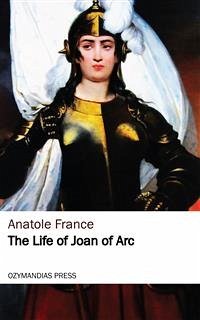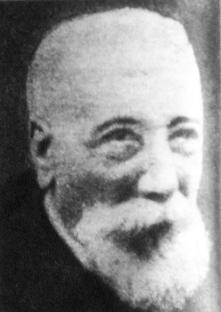THERE is no authentic picture of Jeanne. From her we know that at Arras she saw in the hands of a Scotsman a picture in which she was represented on her knees presenting a letter to her King. From her we know also that she never caused to be made either image or painting of herself, and that she was not aware of the existence of any such image or painting. The portrait painted by the Scotsman, which was doubtless very small, is unfortunately lost and no copy of it is known. The slight pen-and-ink figure, drawn on a register of May 10, 1429, by a clerk of the Parlement of Paris, who had never seen the Maid, must be regarded as the mere scribbling of a scribe who was incapable of even designing a good initial letter. I shall not attempt to reconstruct the iconography of the Maid. The bronze equestrian statue in the Cluny Museum produces a grotesque effect that one is tempted to believe deliberate, if one may ascribe such an intention to an old sculptor. It dates from the reign of Charles VIII. It is a Saint George or a Saint Maurice, which, at a time doubtless quite recent, was taken to represent the Maid. Between the legs of the miserable jade, on which the figure is mounted, was engraved the inscription: La pucelle dorlians, a description which would not have been employed in the fifteenth century. About 1875, the Cluny Museum exhibited another statuette, slightly larger, in painted wood, which was also believed to be fifteenth century, and to represent Jeanne d'Arc. It was relegated to the store-room, when it turned out to be a bad seventeenth-century Saint Maurice from a church at Montargis. Any saint in armour is frequently described as a Jeanne d'Arc. This is what happened to a small fifteenth-century head wearing a helmet, found buried in the ground at Orléans, broken off from a statue and still bearing traces of painting: a work in good style and with a charming expression. I have not patience to relate how many initial letters of antiphonaries and sixteenth-, seventeenth- and even eighteenth-century miniatures have been touched up or repainted and passed off as true and ancient representations of Jeanne. Many of them I have had the opportunity of seeing. On the other hand, if they were not so well known, it would give me pleasure to recall certain manuscripts of the fifteenth century, which, like Le Champion des Dames and Les Vigiles de Charles VII, contain miniatures in which the Maid is portrayed according to the fancy of the illuminator. Such pictures are interesting because they reveal her as she was imagined by those who lived during her lifetime or shortly afterwards. It is not their merit that appeals to us; they possess none; and in no way do they suggest Jean Foucquet...
Hinweis: Dieser Artikel kann nur an eine deutsche Lieferadresse ausgeliefert werden.
Hinweis: Dieser Artikel kann nur an eine deutsche Lieferadresse ausgeliefert werden.










